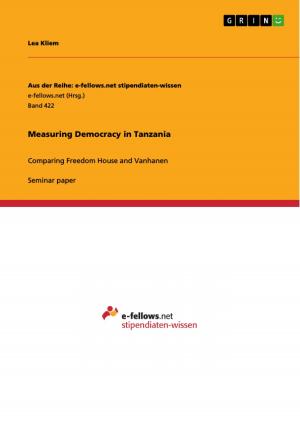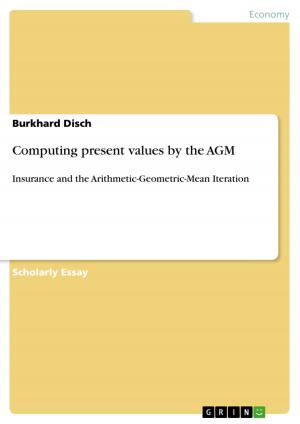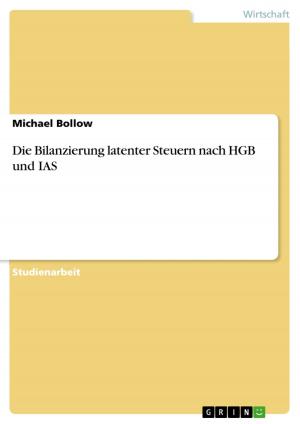Hegemonic Stability Theory: The Rise and Fall of the US-Leadership in World Economic Relations
Nonfiction, Social & Cultural Studies, Political Science, International, International Relations| Author: | Julia Schubert | ISBN: | 9783638257701 |
| Publisher: | GRIN Publishing | Publication: | February 29, 2004 |
| Imprint: | GRIN Publishing | Language: | English |
| Author: | Julia Schubert |
| ISBN: | 9783638257701 |
| Publisher: | GRIN Publishing |
| Publication: | February 29, 2004 |
| Imprint: | GRIN Publishing |
| Language: | English |
Seminar paper from the year 2003 in the subject Politics - International Politics - General and Theories, grade: 1,3 (A), Martin Luther University (GPS), course: International Political Economy, 27 entries in the bibliography, language: English, abstract: In the second half of the 20. century the term of 'Hegemonic Stability Theory ' was introduced by political scientists such as Stephen Krasner, Robert Gilpin and Robert Keohane to explain the mechanisms of the new economic world order that had been established after the Second World War.1 The main assumption of the theory that a stable liberal economic world order needs a hegemo n was explained with the examples of the British hegemony in the 18. and 19. century and with the example of American hegemony in the postwar years of the second half of the 20. century. This term paper intends to answer the following questions: What is Hegemonic Stability Theory about? How is the shape of the hegemonic system? Why will it decline? The theoretical assumptions will be extended by a closer look at the UShegemony. How was it possible that the US could establish their leadership in the international economic system? What did they do to create a stable global economic order? Of course, the last questions have to answer why the US weakened and why their hegemony eventually declined? How is the situation today? Is there still a hegemon? To answer these questions, the first part of the paper will summarize the main assumptions of the theory. Then, the international economic situation after the Second World War which enabled the US to become the world´s hegemon will be shortly presented. The following chapters will deal with the establishment of the UShegemony by creating international regimes such as IMF, IBRD and GATT. Finally, the end of the paper will explain how the American hegemony declined and which role it plays in the present international economy. 1 Reinhard Rode. Weltregieren durch Internationale Wirtschaftsorganisationen. Halle, 2001: 24.
Seminar paper from the year 2003 in the subject Politics - International Politics - General and Theories, grade: 1,3 (A), Martin Luther University (GPS), course: International Political Economy, 27 entries in the bibliography, language: English, abstract: In the second half of the 20. century the term of 'Hegemonic Stability Theory ' was introduced by political scientists such as Stephen Krasner, Robert Gilpin and Robert Keohane to explain the mechanisms of the new economic world order that had been established after the Second World War.1 The main assumption of the theory that a stable liberal economic world order needs a hegemo n was explained with the examples of the British hegemony in the 18. and 19. century and with the example of American hegemony in the postwar years of the second half of the 20. century. This term paper intends to answer the following questions: What is Hegemonic Stability Theory about? How is the shape of the hegemonic system? Why will it decline? The theoretical assumptions will be extended by a closer look at the UShegemony. How was it possible that the US could establish their leadership in the international economic system? What did they do to create a stable global economic order? Of course, the last questions have to answer why the US weakened and why their hegemony eventually declined? How is the situation today? Is there still a hegemon? To answer these questions, the first part of the paper will summarize the main assumptions of the theory. Then, the international economic situation after the Second World War which enabled the US to become the world´s hegemon will be shortly presented. The following chapters will deal with the establishment of the UShegemony by creating international regimes such as IMF, IBRD and GATT. Finally, the end of the paper will explain how the American hegemony declined and which role it plays in the present international economy. 1 Reinhard Rode. Weltregieren durch Internationale Wirtschaftsorganisationen. Halle, 2001: 24.















